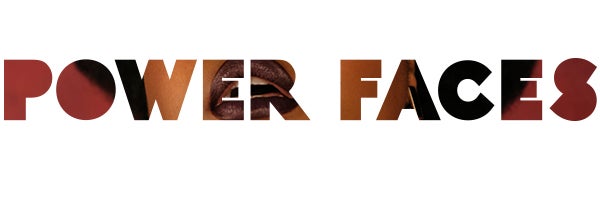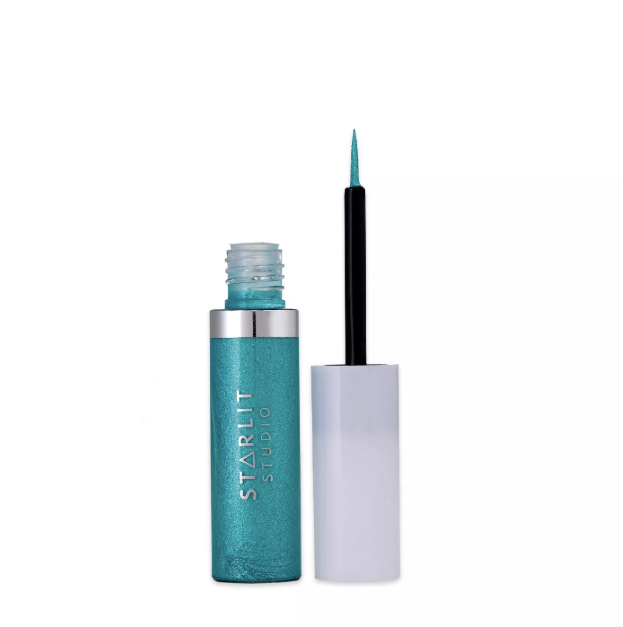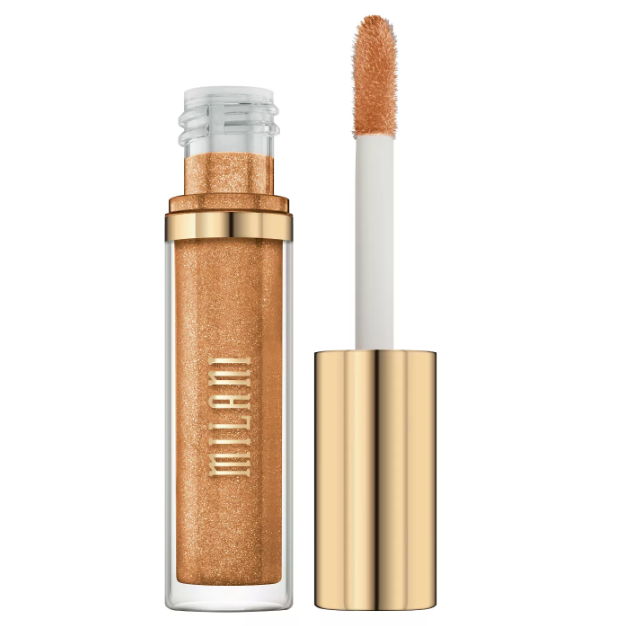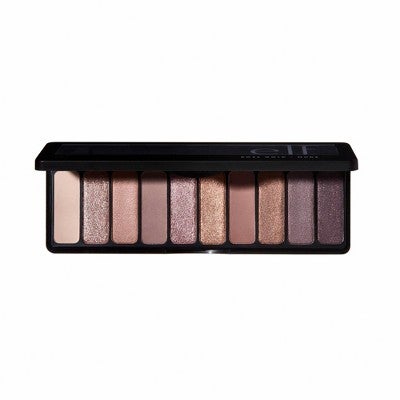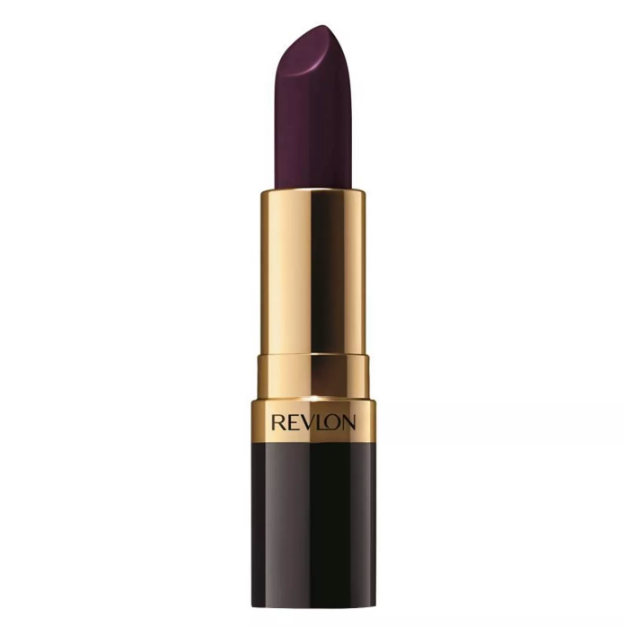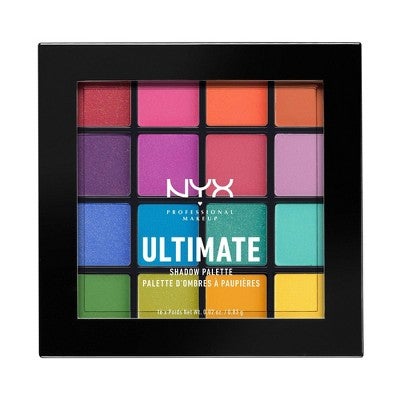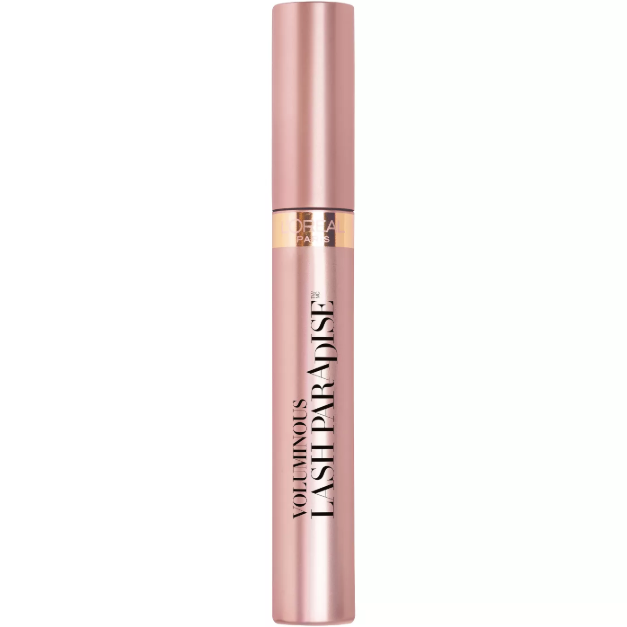For some, a lipstick is just a lipstick. But for others, it's a source of strength, creativity, and expression. In our series Power Faces, we'll explore the relationship between strong women and the makeup they choose to wear — or not. Our latest subject, in partnership with Target Beauty, is Enam Asiama, a 25-year-old model and plus-size advocate born in Ghana currently living in London. This story was told to Jennifer Mulrow and edited for length and clarity.
My first point of contact in terms of beauty was my mother. She was hyper-femme, and everything had to be very classy with bold prints and full makeup. I grew up watching her get ready for special occasions — mainly church. Church, especially in Africa, is such a massive culture in and of itself. I would sit and watch her doll up, and I would be mesmerized, so eager to help her pick new eyeshadow colors to try.
AdvertisementADVERTISEMENT
I took on my mother's love for beauty, even working as a makeup artist during my gap year. It’s a lot of hard work, and when you always want something right, it can drive you crazy sometimes. I don’t think I was ready for that. But that’s how I got into the modeling industry. A lot of photographers on set would say, "Oh, I'd love to shoot you. You look amazing." I have quite a bold personality, too, which helped.
FORGING IDENTITY
I was born and partly raised in Ghana, until I was 9 years old and we moved to Birmingham, England. I grew up in a Christian household, so a lot of the things that I saw in terms of beauty were about modesty and elegance. The culture in Ghana is that women have to look and act like women, and men have to act and be like men. I feel like that transcends globally.
The beauty standards in Ghana have changed a lot. It was one of the first places in Africa to ban bleaching when, at the time, it was such a prevalent part of Ghanaian and African culture. The lighter your skin was, the “better looking” you were. People treated you differently because of your proximity to whiteness, meaning you came off as more classy, rich, educated, well put together. That’s the culture I was raised in.
My baseline for measuring my beauty came from words that were used to describe me as a child: “fatty bombom,” “obolobo,” and so on. I had fairer skin and was physically much taller and bigger than my peers, which I was teased for at times. My parents always taught my siblings and me to focus on our education as a means of rising above, as their parents taught them.
AdvertisementADVERTISEMENT
As an adult, I've had time to form my own understanding of beauty while curing some of the damage. I am a Black, African-British, fat, queer, and femme individual. I happen to fall under labels that are deemed undesirable and unworthy of any real protection. I am humbled and saddened by the limited amount of representation for people that look like me, but I believe that representation can start with me.
COME AS YOU ARE
I eventually moved to London for university and decided to stay because I felt I could express myself better here. Being in England is a massive contrast from being in Ghana, in terms of the things I saw and the type of people I was around. In London, I’m always seeking areas that are full of life and different cultures and diversity.
A lot of who I am has been influenced by the drag queer scene. When I first moved to London, the people I was hanging around were taking over queer nightlife. The way that you dress for a night out, you have to come through with a look. Think: multi-colored eyeshadow to match your colored eye contacts; glossy vibrant lids to accompany sticky, bold lips; over-arched brows drawn to nearly touch your baby hairs. There wasn’t any pressure to look or act a certain way, though — you just come as you are. I noticed that a lot of people wore bold makeup, had big hair, or had a specific personality that was quirky and weird. I finally felt like I fit in.
AdvertisementADVERTISEMENT
I’ve taken on my mom’s attitude of being hyper-femme, but hanging around the people I do now, who don’t play into gender norms, has shown me that it’s good to tap into my masc side, as well. To me, that means putting less pressure on myself to look a certain way and being more dominant in what I want from myself and what I want for those around me — to be performative about strength.
With makeup, I tap into my hyper-femme side by creating colorful brows, overdrawn lips, smoldering smoky eyes, or graphic shapes. I even like to use flowers or draw hearts or stars with shimmery shadows to be the center of attention not just on arrival. Tapping into my masc side, I try to keep it basic: light concealer instead of foundation, tinted lip balms and natural-looking blusher, simple mascara with no lashes. I still keep my lips overdrawn but in a classic, brown shade with no gloss. I feel that my hyper-femme side will always play into my more masc-appearing self, for balance.
GODDESS ENERGY
I feel like everybody needs to fall into activism at least once in their life. So much of what I know about society is don’t do this and don’t do that. Don’t wear this and don’t look that way. I’m a stubborn person, so I’ve channeled all my stubborn energy into taking over the world by showing who I am, showing my character, and telling people it’s okay to focus on positivity and being a light and a voice in someone’s life.
AdvertisementADVERTISEMENT
If you’re a good person and you have great intentions for others — and for yourself, first and foremost — it will show through as this goddess energy. That is such a massive, driving force in who I am and what my platform represents. That is what beauty is all about.
Being around a lot of creatives, I’ve heard so many stories of those around me striving to make the media more inclusive of Black people, something that’s been missing for the longest time. I think that if I bring that energy, especially as a plus-size Black person, I can be part of the fight for inclusivity for every type of person out there. I will forever promote the agenda that Black is beautiful and fat folks are worthy of visibility and love.
TRANSFORMATIVE TECHNIQUE
I feel the most like myself in theatrical and editorial makeup that involves lines, colors, textures, and shapes — anything with unplanned, 3D, or freehand designs. I believe makeup is art, and when I put on makeup to go out, it’s like working on a piece of art. I love having color choices, like with this retro '80s colorblocked eyeshadow. It takes pops of greens and pinks to a whole new level.
When I’m on set, the makeup brings this energy, a driving force. I feel visible and I feel seen. All of my intersects — being Black, queer, femme, fat — all of these different minority groups come together and create this one bubble of strength. It’s like I’m seen now, and I’m heard.
AdvertisementADVERTISEMENT
I feel the most confident in Hollywood-glam makeup: golden bronze eyes, black-winged liner, and a dark red or burgundy lip — like the daring, dark-brown lip look from today, which complements my equally brown skin. My makeup has to be all-around diva. I want your soul to be snatched. I want people to sense that their souls are about to get snatched before I walk out the door. And when I walk past, I want the, “Oh my god, who is she?” And I’m like, ENAM!
shop 6 products
AdvertisementADVERTISEMENT








